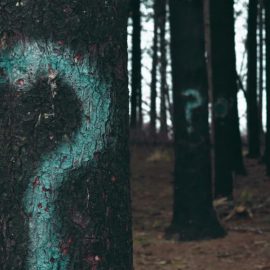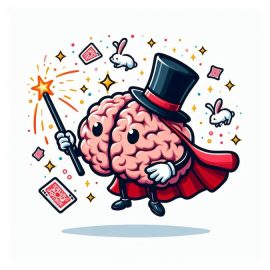

This article is an excerpt from the Shortform book guide to "Quiet: The Power of Introverts" by Susan Cain. Shortform has the world's best summaries and analyses of books you should be reading.
Like this article? Sign up for a free trial here .
What qualities of introverts have psychologists identified? Are these characteristics generally agreed upon or are there some disagreements?
There is no universally accepted definition of introversion based on objective criteria. The qualities of introverts focus on how these individuals react to external events and where they draw their energy from.
Keep reading for more about the qualities of introverts and how to identify introverted personalities.
Research and the Qualities of Introverts
Aron’s list of twenty-seven characteristics, based on interviews and questionnaires with people who described themselves as being introverted or easily overwhelmed by stimulation, dovetailed with Kagan’s findings as well as with other research. The research found that highly sensitive people have certain characteristics, which may also be qualities of introverts:
- Are astute observers who look before they leap
- Dislike surprises
- Are sensitive to smells, sounds, sights, pain, and caffeine
- Don’t like being observed (for instance, at work or performing music) or judged (for instance, in job interviews)
- Are philosophical or spiritual rather than materialistic
- Are creative and intuitive
- Dislike small talk
- Dream vividly and often recall details of their dreams
- Love music, nature, art, and beauty
- Are empathic
- Have a strong conscience
- Dislike violent movies and TV shows
- Feel emotions intensely, especially joy, fear, and sadness
- Thoroughly process information about their environments and notice subtleties
What Is Introversion?
What differentiates introverts from extroverts? The definition is still not completely agreed upon, and has changed over the years.
Psychologist Carl Jung’s 1921 book Personality Types popularized the terms as key to one’s personality. He described introverts as internally focused on thoughts and feelings and extroverts as externally focused on people and activities. Introverts focus on analyzing events while extroverts want to be part of events. Introverts draw energy from being alone while extroverts are energized by interacting with others. These are some of the key qualities of introverts.
The Myers-Briggs personality test used by many organizations is based on Jung’s theories of introversion and extroversion. But today there’s no universally accepted definition based on objective criteria.
Some personality psychologists belong to the “Big Five” school, believing that personality consists of five core traits: extroversion, agreeableness, openness to experience, conscientiousness, and neuroticism. They define introversion by qualities introverts lack—assertiveness, sociability—rather than by their attributes.
Some think Jung’s ideas are outdated, while others still tout them. But many psychological researchers agree on several key qualities of introverts versus extroverts:
- Introverts and extroverts require different levels of external stimulation to function effectively. Introverts need less outside stimulation—for instance, they prefer to work alone, spend free time alone, or visit with just one or two friends. Extroverts need a lot of stimulation, typically from social activities and busy environments.
- Introverts and extroverts have different work styles. Introverts focus on one task at a time, work methodically, and have a great ability to concentrate. They’re not motivated by external rewards. Extroverts jump into jobs quickly, multitask, take risks, and make quick decisions. They may be motivated by factors such as competition and status.
- They have different styles of interaction. Introverts can be sociable but soon tire of being in large groups or parties. They listen, think before speaking, and may express themselves better in writing. They dislike conflict and small talk. Extroverts are gregarious, assertive, dominant, and comfortable with conflict. They don’t like to be alone.
Introverts are stereotyped as recluses or loners who dislike people. This may be true of some introverts, but most are as friendly as anyone. Another stereotype is that introverts are shy. Although some introverts may be shy, like T.S. Eliot, there are key differences between introversion and shyness. Shy people dislike social situations because they’re afraid of embarrassment, while introverts dislike social situations because they’re too stimulating.
It’s actually possible to be a shy extrovert, like Barbra Streisand, who has stage fright, or an introvert who’s not shy, like Bill Gates. To further complicate things, an introvert who’s not speaking because she’s overstimulated and an extrovert who’s not speaking due to shyness can both come across as shy.
Introverts also may be “highly sensitive,” which is a psychological term meaning more apt to respond with strong feelings to something—for instance, to be moved by music or a sad story or be upset by violence. Researchers don’t know how many introverts are highly sensitive, but they’ve determined that 70% of highly sensitive people are introverts.
Are You an Introvert?
If you’re not sure whether you’re an introvert, you can get an idea by considering the extent to which the following qualities, which many introverts share, apply to you (this isn’t a scientifically valid personality assessment):
- You prefer one-to-one conversations.
- You enjoy time alone.
- You don’t like small talk but enjoy in-depth conversations about topics that interest you.
- You prefer to work alone on one thing at a time, and dislike interruptions.
- You’re a good listener.
- You prefer to think first rather than speaking off the cuff.
- You’re bothered by conflict.
- You’re exhausted by interacting with a lot of people.
The more items you agree with, the more introverted you may be. However, people usually fall on a spectrum between introverted and extroverted and no one is introverted or extroverted in all circumstances. Your introversion or extroversion also is affected by your personal experiences and other personality traits, such as sensitivity.

———End of Preview———
Like what you just read? Read the rest of the world's best book summary and analysis of Susan Cain's "Quiet: The Power of Introverts" at Shortform .
Here's what you'll find in our full Quiet: The Power of Introverts summary :
- How society overvalues extroverts
- Why introverts' overlooked strengths are the key to greater success in work, school, and society
- How extroversion caused the fall of Enron







Hi Rina,
I enjoyed your post about qualities of introverts, as identified by the psychologists. I am a big fan of Susan Cain, too, since her early TED-talk videos! Among other things, I like how you highlighted some of the common stereotypes about introverts. I feel like, just as most of the introverts don’t talk about themselves (and not many people read about others nowadays) – its important to share such posts. Keep it up and good luck!
Thanks.